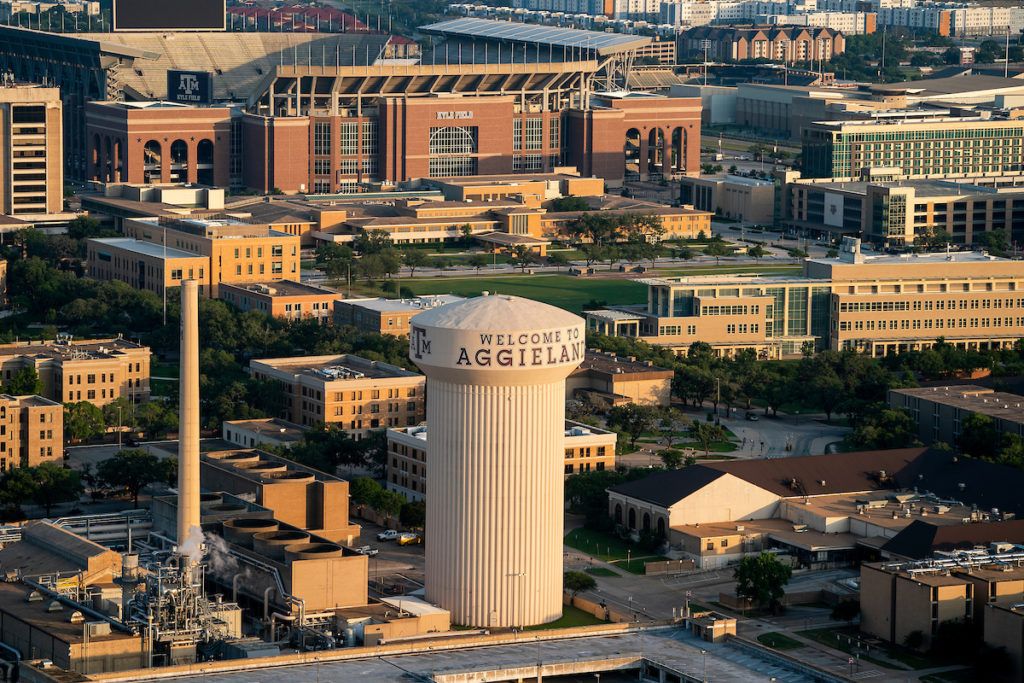The Bitcoin Mining Drama in College Station — What’s Next for Bryan?
September 30, 2025
The Project That Had Everyone Talking
For months, the buzz around town was that College Station might be getting a massive “Bitcoin mining center” in its backyard. The plan? Roughly 200 acres in the Midtown Business Park, home to a high-powered computing campus that would run day and night.
Here’s the twist: the company behind it, Priority Power, later clarified that it wasn’t about Bitcoin at all. Instead, they pitched it as a high-performance computing and AI data center. But by then, the “Bitcoin” nickname had already taken off, and locals weren’t convinced.
The Night College Station Said “Nope”
On September 11, 2025, City Hall was packed. Neighbors showed up with petitions, handwritten notes, and plenty of opinions. More than 75 people spoke during public comments, and thousands had signed petitions in advance.
Their concerns were loud and clear:
• Noise from industrial-scale cooling fans running 24/7.
• Utility strain, with questions about how much electricity and water the facility would pull.
• Transparency, with many saying the proposal moved too quickly and without enough public input.
• Neighborhood impact, especially for families living near the site.
By the end of a marathon meeting, the vote was unanimous: College Station would not sell the land.
For many, it felt like a win for the community. For others, it left the question hanging — if not here, then where?
Bryan Steps Into the Spotlight
The answer may be just up the road. While College Station closed the door, Bryan has quietly been opening one.
• In mid-September, Bryan annexed 162 acres near RELLIS campus, zoning it for future uses that include data centers.
• A separate annexation near Highway 21 and OSR also allows for data centers and commercial development — but with a twist: crypto mining is banned in that zone.
City planners say they’ve included buffers, landscaping, and noise safeguards in the zoning. No project has officially been announced, but Bryan seems to be positioning itself for opportunities College Station turned away.
Why This Matters for Locals
Projects like this aren’t just about technology — they touch everyday life in big ways.
• For homeowners, the biggest questions are about property values, noise, and neighborhood character.
• For investors, it’s about potential jobs, growth, and whether tech companies could bring more activity (and tax revenue) to the area.
• For curious locals, it’s simply the tea: how fast one proposal went from rumor to rejection, and whether it might pop back up in Bryan.
As one resident said at City Hall: “This isn’t just about computers. It’s about our homes, our health, and our future.”
Our Take
Here’s what we’re watching:
• The story isn’t over. College Station’s rejection was clear, but similar proposals could resurface.
• Bryan is laying groundwork. Annexations and zoning don’t guarantee a project, but they do set the stage.
• Community voices matter. The unanimous “no” in College Station happened because people showed up, spoke out, and made sure concerns were heard.
Quick FAQs
Q: Was this really a Bitcoin mining center?
A: Early drafts called it Bitcoin mining, but the developer later clarified it was intended for AI and high-performance computing.
Q: Why did College Station reject it?
A: Concerns about noise, utilities, and neighborhood impact led to a unanimous vote against it.
Q: Is Bryan moving forward with one?
A: Not yet. Bryan has annexed land and created zoning that allows data centers, but no specific project has been approved.
Q: Should locals be worried?
A: Not for now — but it’s worth keeping an eye on Bryan’s city council agendas and public hearings.
Bottom Line
The so-called Bitcoin mining center may not be landing in College Station, but the conversation is far from over. With Bryan making moves that could welcome similar projects, locals are right to stay curious.
For now, Aggieland said “no” — but the next chapter could be just across the city line.

Ready to Find Your Home?
Let’s chat about your next step. No pressure, no commitment. Book a quick 20-minute call with Jordan or a member of the Brick + Parcel team to get local insight and a plan that works for you.